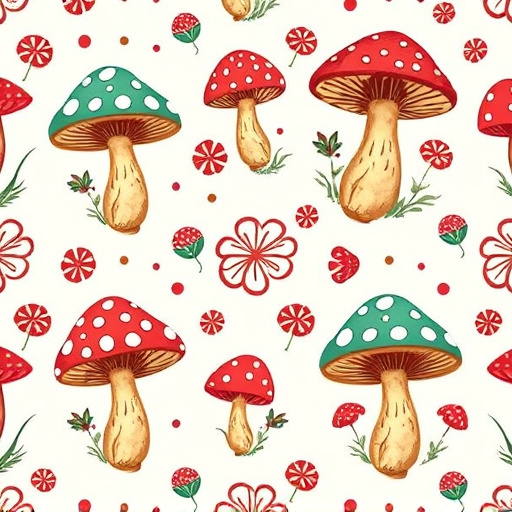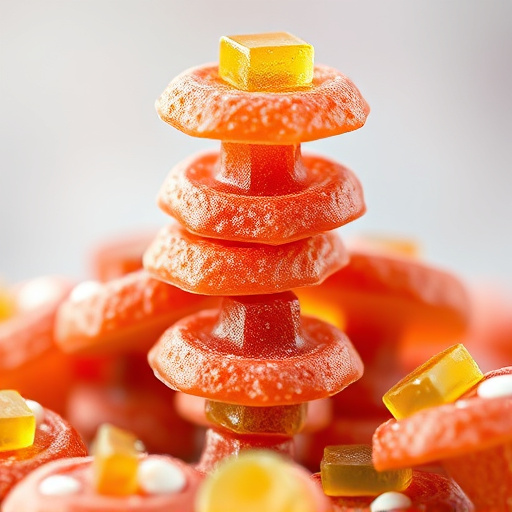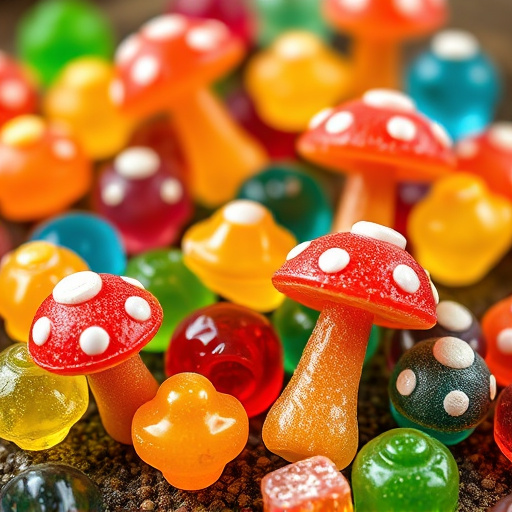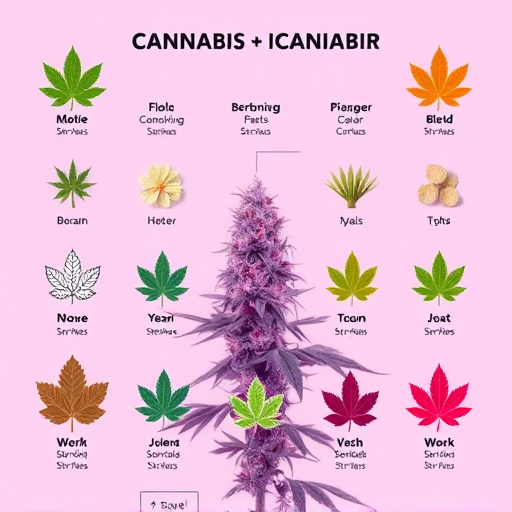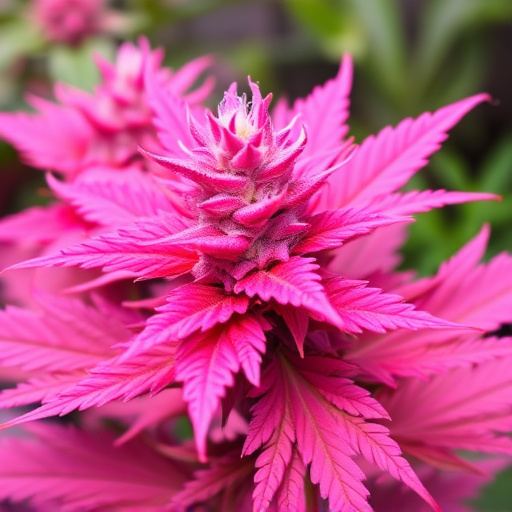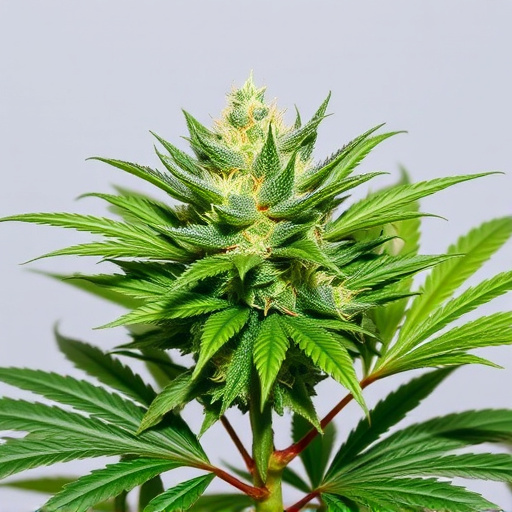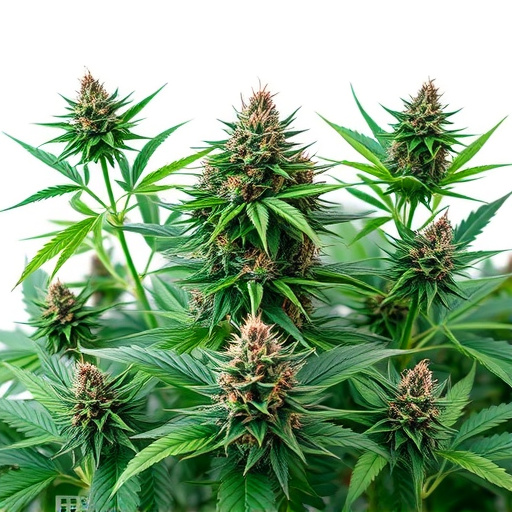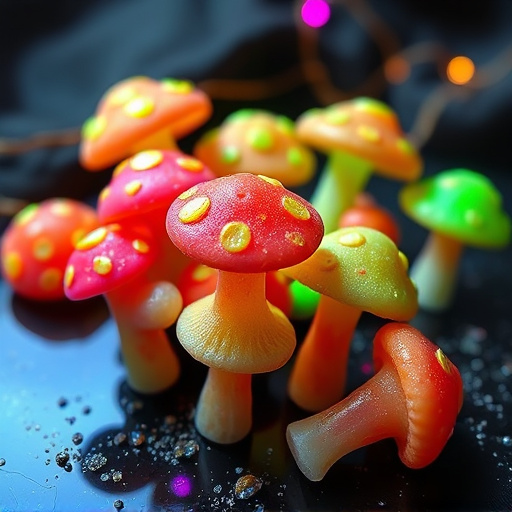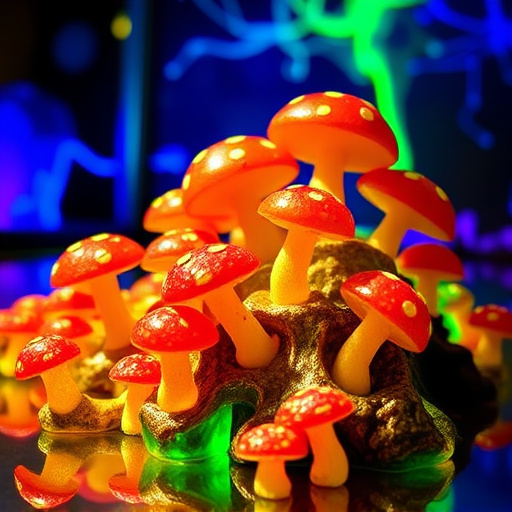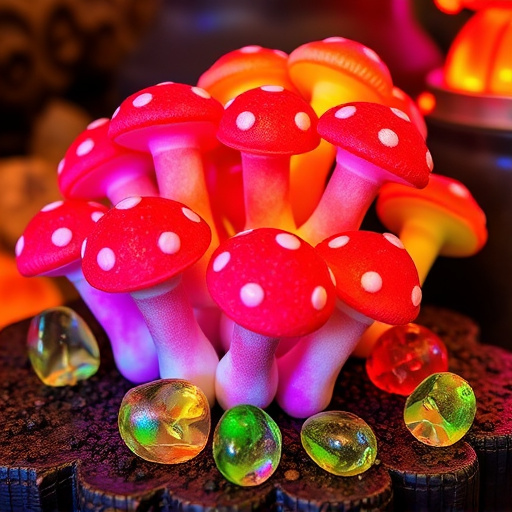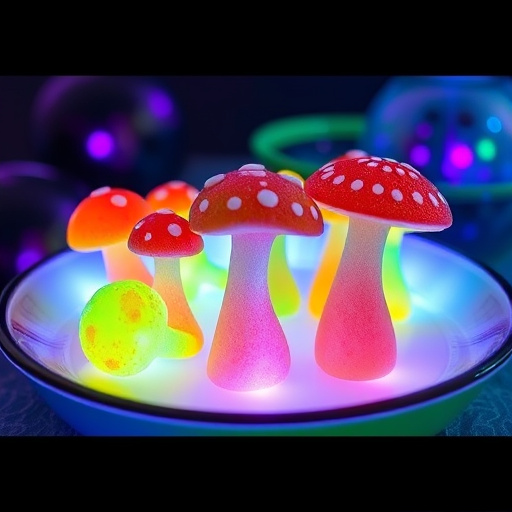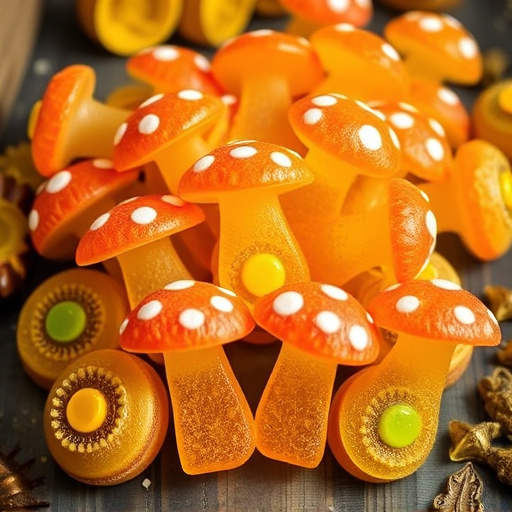Psilocybin, found in magic mushroom gummies, offers therapeutic potential for mental health conditions through its interaction with brain receptors and modulation of gut microbes (the "second brain"). As a serotonin receptor agonist, psilocybin induces altered perceptions and well-being. Magic mushroom gummies provide a convenient way to explore these benefits, with research highlighting their possible treatments for depression, anxiety, and PTSD. The gut-brain connection, influenced by psilocybin's impact on gut microbiota, is a promising area of study in psychobiotics.
“Unleash the potential of your mind with an innovative approach to well-being: Magic Mushroom Gummies. This modern twist on ancient remedies offers a convenient, effective, and safe way to explore the therapeutic benefits of psilocybin. In this comprehensive guide, we delve into the science behind psilocybin’s impact on the gut-brain axis, uncover the rise of gummies as a popular delivery method, and navigate legal considerations for responsible consumption. Discover how these tiny treats could be a game-changer in mental health and wellness.”
- Understanding Psilocybin and Its Effects on the Gut-Brain Axis
- – Explanation of psilocybin and its origins in magic mushrooms
- – How psilocybin interacts with the brain and gut system
Understanding Psilocybin and Its Effects on the Gut-Brain Axis
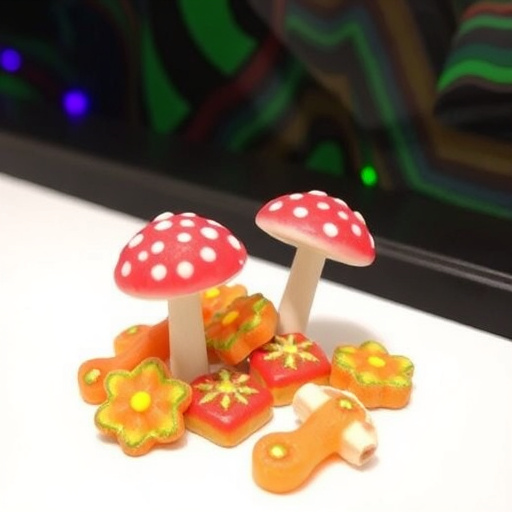
Psilocybin, the active compound found in magic mushroom gummies, is a powerful psychedelic that has gained significant interest in recent years for its potential therapeutic benefits. When consumed, psilocybin interacts with specific receptors in the brain, leading to altered perceptions and heightened consciousness. However, its effects extend far beyond the mind. One of the most fascinating aspects of psilocybin is its impact on the gut-brain axis – a complex communication network that connects the gastrointestinal tract and the central nervous system.
Research suggests that psilocybin can modulate the activity of gut microbes, which play a crucial role in overall health and well-being. By influencing the gut microbiota, psilocybin may contribute to improvements in mood, cognitive function, and even physical symptoms. This gut-brain connection is a growing area of interest in neuroscience, and understanding how magic mushroom gummies can interact with this axis offers promising insights into potential treatments for various mental health conditions.
– Explanation of psilocybin and its origins in magic mushrooms
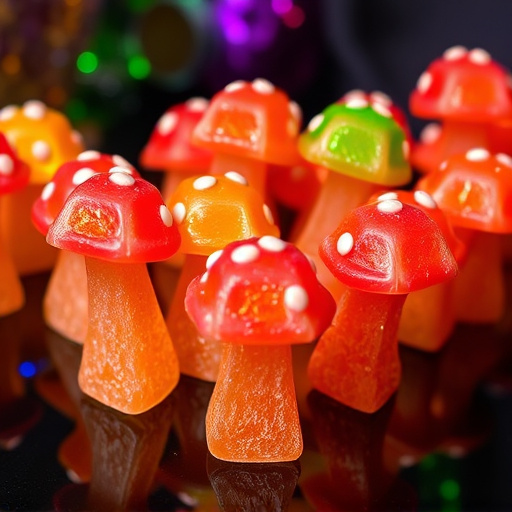
Psilocybin, a naturally occurring psychedelic compound, is found in certain species of magic mushrooms, commonly known as ‘magic truffles’ or ‘psychoactive fungi’. These mushrooms have been used for centuries in various cultural and spiritual practices, particularly in indigenous communities around the world. The active ingredient, psilocybin, is a potent stimulator of serotonin receptors in the brain, leading to altered states of consciousness, enhanced creativity, and profound experiences often described as mystical or spiritual.
Beyond its recreational use, psilocybin has gained significant interest from the scientific community for its potential therapeutic benefits, particularly in the context of the gut-brain connection. Research suggests that psilocybin can modulate the gut microbiota, which plays a crucial role in overall health and well-being. Magic mushroom gummies, as an edible form, offer a convenient way to experience the effects of psilocybin while exploring its potential therapeutic applications. These gummies can provide a controlled dose, allowing individuals to embark on a journey that may offer insights, promote self-reflection, and even aid in various psychological and physiological conditions through the powerful interaction between psilocybin and the gut-brain axis.
– How psilocybin interacts with the brain and gut system
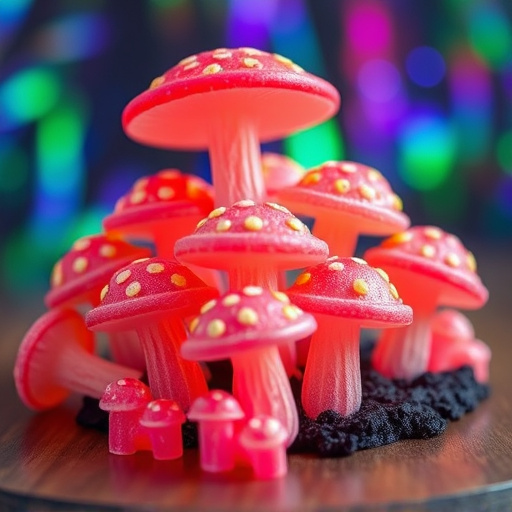
Psilocybin, the active compound found in magic mushrooms, has a profound effect on both the brain and gut system when consumed in gummy form. In terms of its interaction with the brain, psilocybin acts as a serotonin receptor agonist, primarily targeting the 5-HT2A receptors. This binding leads to altered perceptions, enhanced creativity, and a deep sense of well-being. The experience, often referred to as a ‘trip’, can be therapeutic and is being explored for its potential in treating depression, anxiety, and PTSD.
As for the gut-brain connection, recent studies suggest that psilocybin can modulate the gut microbiota, which plays a significant role in overall health and well-being. The gut acts as a second brain, producing neurotransmitters and influencing mood and cognition. When consumed, magic mushroom gummies can stimulate the release of various neurotransmitters and hormones, creating a harmonious effect between the brain and gut. This interaction may contribute to the overall therapeutic experience and positive outcomes associated with psilocybin consumption.
Psilocybin, naturally found in certain magic mushrooms, has gained attention for its potential therapeutic effects on mental health and the gut-brain connection. While magic mushroom gummies may seem like a novel approach to wellness, understanding how psilocybin interacts with our brain and gut system is crucial. The gut-brain axis plays a vital role in overall well-being, and research suggests that psilocybin can modulate this connection, offering a promising avenue for exploring natural remedies. As the world of psychedelic medicine evolves, further studies will help unlock the full potential of magic mushroom gummies as innovative tools for enhancing mental health and fostering a deeper understanding of the mind-body relationship.
